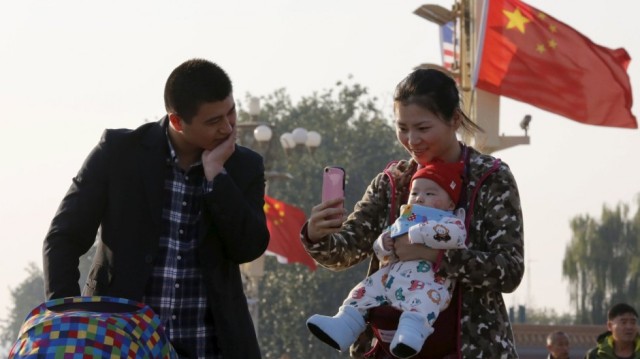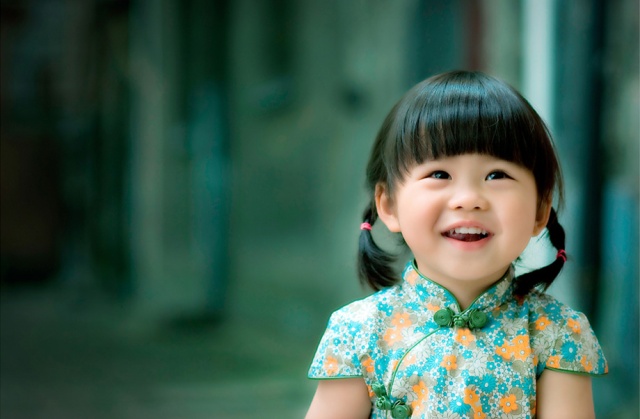We have looked at multiple-choice listening questions in previous lessons: Nobel Winner; Sex Trade; Old Asians; Pope Francis.
This lesson is going to use an audio clip from the VOA learning English website titled Two-Child Policy, about China’s new rules regarding family size.
Before you begin, here are a few words that you’ll meet:
- couple – n. two people who are married or have a relationship
- maternity – adj. relating to the time when a woman gives birth to a baby
- kindergarten – n. a class for young children
- contribute – v. to give or provide something
- catering – adj. providing services, such as food or other needed services, for a group
- child-rearing – n. related to raising a child
The answers are at the bottom. As with all question types, you must analyse the questions before you begin to listen. Understand what the question is asking and guess what’s coming.
Listen from 00:00 to 01:00
Choose an answer for questions 1 and 2
1: The new rules will probably lead to (1) ……
- A: reduced investments.
- B: more products being sold.
- C: reduced demand for services.
- D: a slowing economy.
- E: lower payroll expenditure for companies.
2: Because of the new regulations, the Chinese government expects the economy to (2) ……
- A: increase by one percent.
- B: rise by one and a half percent.
- C: add thirty million jobs.
- D: improve by the middle of the century.
Listen from 01:00 to 01:47
Choose an answer for questions 3 and 4
3: According to the expert, which effect will not be caused by more babies?
- A: more homes for new mothers.
- B: an increase in hospitals.
- C: more institutes of education.
- D: huge investment in the whole economy.
4: According to the same expert, families will
- A: save more money.
- B: spend less money.
- C: help the GDP to increase.
- D: require more savings.
Listen from 01:47 to 02:35
Choose an answer for questions 5
5: The government
- A: began limiting births in the 1930s.
- B: will give permission for bigger families only to rural citizens.
- C: expects more babies to be born in the countryside.
- D: must invest more money in urban healthcare centres.
Listen from 02:35 to 03:40
Choose an answer for questions 6, 7 and 8
6: Which advantage does The Conference Board expect?
- A: increased demand for all products and services.
- B: growth and unemployment in industries providing things for raising kids.
- C: more work for grandparents .
- D: people consuming more services that help them raise kids.
7: Which disadvantage does The Conference Board expect?
- A: grandparents suffering more stress.
- B: falling labour costs.
- C: fewer working mothers and fathers.
- D: more employment.
8: What is the goal of allowing more babies in each family?
- A: to provide more labour.
- B: to deal with shrinking population.
- C: to help the population get old.
- D: to deal with the workforce.
Answers and transcript below the image
- B
- C
- D
- C
- C
- D
- A
- A
China’s decision to end its one-child policy is likely to affect the country’s economy. Official Chinese media reported last month that all couples will be permitted to have two children. The change in policy is expected to create new investments and increased demand for goods and services. The move comes as China’s economy is slowing. However, the change also may increase demand for higher pay and increase labor costs.
Speaking at a press conference Tuesday, Chinese officials predicted that the new policy would raise economic growth by about half of one percent. They said it would provide China with about 30 million laborers by 2050.
He Weiwen is with the Chongyang Institute for Financial Studies at Renmin University in Beijing. He says that more children will mean “more maternity homes, hospitals, kindergartens and schools. It will certainly result in massive investment in these areas. The two-child policy will also lead to more spending on the second child, and thus contribute to economic growth.” He added, “The families having the second child will reduce their savings to meet the new requirement.”
The policy limiting families to one child began more than 30 years ago. When the new policy goes into effect, 91-million couples will have official permission for a second child. The government expects that at least 60 percent of parents having two children will come from rural areas.
Limited health care and educational centers in rural areas and small cities have long been a problem in China. The government will have to make new investments in these areas to provide quality centers for families with two children.
The Conference Board, a U.S.-based research group, says there are both good and bad effects that might result from the two-child policy. The group says, “An increase in the number of children could have a positive impact on the consumption of products and services catering towards child rearing.” It adds, “this could lead to growth and employment demand in those industries.” But the Conference Board also warned of the effects of rising labor costs, and greater pressure on aging grandparents. These men and women are often forced to take care of the young children of working mothers and fathers.
The main purpose of permitting two children in each family is to deal with the aging of China’s population and shrinking workforce.



Thanks. I’m not going to burden my grandparents with my kids. But babysitters are expensive here. Mmmmm …..
Anyway, this was good and I’m getting better and better at these type of questions. Tks